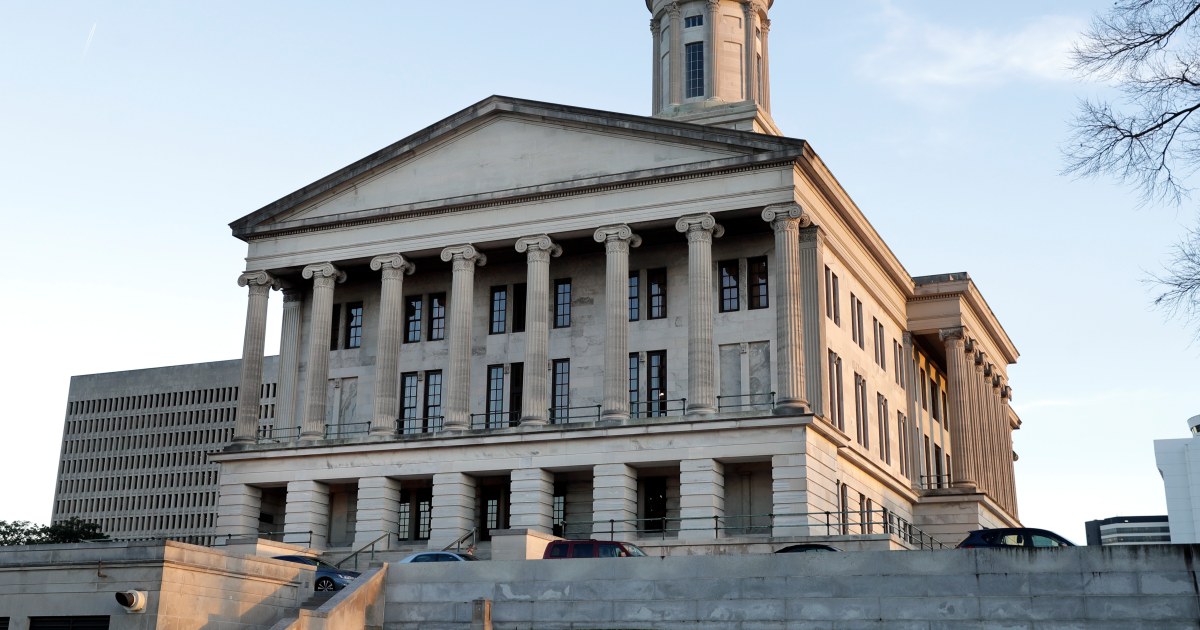The Supreme Court's decision to overturn the constitutionality of abortion continues to mobilize in the United States.
On the signs brandished: hangers, fetuses but also pills and LGBT flags.
Because, with this repeal, it is a whole series of judgments rendered by the Supreme Court that could end up in the sights of conservative judges.
Read also“The decision of the Supreme Court attests to the hypertrophy of the American judicial power”
Before this text, this possibility had already worried some Americans when the internal document leaked to the Supreme Court which foreshadowed a reversal of abortion protection.
Joe Biden himself had warned of the possibility of a reversal on gay marriage.
A fear that he renewed after the announcement of the final decision a few days ago.
This is also what Clarence Thomas, one of the nine wise men, suggests in a personal argument accompanying the June 24 decision.
Favorable overthrow of Roe v.
Wade, the judge appointed for life by George Bush in 1991, expressed his wish, "
in future cases
", to "
review all case law
" which is also based on respect for privacy.
In this text, Clarence Thomas designates three decisions in particular.
First "
Griswold v.
Connecticut
”, a judgment of 1965 which consecrates the right to contraception for married women (it will be followed in 1972 by a decision authorizing unmarried women to have access to it).
Then, "
Lawrence v.
Texas
”, which makes unconstitutional the laws penalizing sexual relations between people of the same sex since 2003. Finally the decision of 2015 “
Obergefell v.
Hodges
,” which protects marriage for all federally.
“Right to privacy”
Three decisions based on the same reasoning as Roe v.
Wade, from a progressive reading of the XIVth Amendment to the Constitution.
Written in 1986, this text states that no State may deprive “
a person of his life, liberty or property without due legal process
”.
"
It is by interpreting this text in a liberal way, that the judges have, since 1965, deduced the existence of a 'due process', which can be translated awkwardly by 'right to privacy'
", explains Denis Lacorne, political scientist and specialist in the United States.
By affirming that “
the Constitution is neutral
” and “
does not take sides on the question of abortion
”, Brett Kavanaugh and the five other conservative judges therefore point the finger at this “
right to privacy
”.
And, for Denis Lacorne, this reasoning could not be limited to the question of abortion.
“
Challenging a progressive reading of the Fourteenth Amendment implies that the freedoms derived from the 'right to privacy' have no basis.
In fact, for these judges, gay marriage and access to contraception have no basis either
”.
Read also“They lied under oath”: lively controversy in the United States after the decision of the judges of the Supreme Court on the right to abortion
For the time being, Clarence Thomas remains the only judge to openly affirm his desire to aim for other decisions.
In his argument, conservative judge Brett Kavanaugh notably clarified that the questioning of the right to abortion "
does not threaten
" other rights.
A “
promise without guarantee
”, according to Denis Lacorne.
“
Clearence Thomas says out loud what the other judges think quietly: if the reasoning is logically applied to the end, it will not spare the other decisions
”, estimates the specialist.
A counter-revolution
Even broader than the "
right to privacy ", Romain Huret sees in this recent decision a real "
legal counter-revolution
" looming
.
“
The Supreme Court has never been so ready to reverse emancipatory decisions
,” explains the historian and specialist in the United States.
In fact, with 6 conservative judges against 3 progressives, the majority of wise men today are originalists, that is to say attached to interpreting the constitution as it was written by the founding fathers and not as it could be adapted to contemporary society.
"
This majority believes that the Supreme Court has largely exceeded its rights in terms of privacy and minority for fifty years and wishes to repair this 'fundamental error' by returning to a primary reading
", describes the specialist.
A term also taken up in the personal argument of Clarence Thomas, according to which the Court has “
the duty to 'correct the error'
” established by a progressive interpretation.
In particular, the decisions driven by former judge Ruth Bader Ginsburg, who died in 2020 and icon of progressivism.
Read alsoAbortion: what the Supreme Court of the United States really said
These challenges, if they occur, will only take place in the long term.
“
For the moment, the Supreme Court has not announced any future decisions on these subjects, and it will take time before it takes hold of them
,” analyzes Yann Philippe, lecturer and specialist in the United States. United.
Because the court rules only as a last resort: for the sages to be able to judge it, the case must first be passed through lower courts and four judges agree to take it up.
A procedure that can lead to various “
tactics
”, according to Yann Philippe.
"
The more conservative states that see the overthrow of Roe v.
Wade the possibility of going further can very well mobilize to pass laws in contradiction with constitutional law
”, considers the specialist.
"
By passing a law against gay marriage, a State can thus initiate a lawsuit and obtain after a certain time a more restrictive decision from the Supreme Court
", he continues before concluding: "
It would take time, without doubt for several years, but it is possible
".







/cloudfront-eu-central-1.images.arcpublishing.com/prisa/F5GRV7HUTZACRHBAVHSBBMKKFM.jpg)

